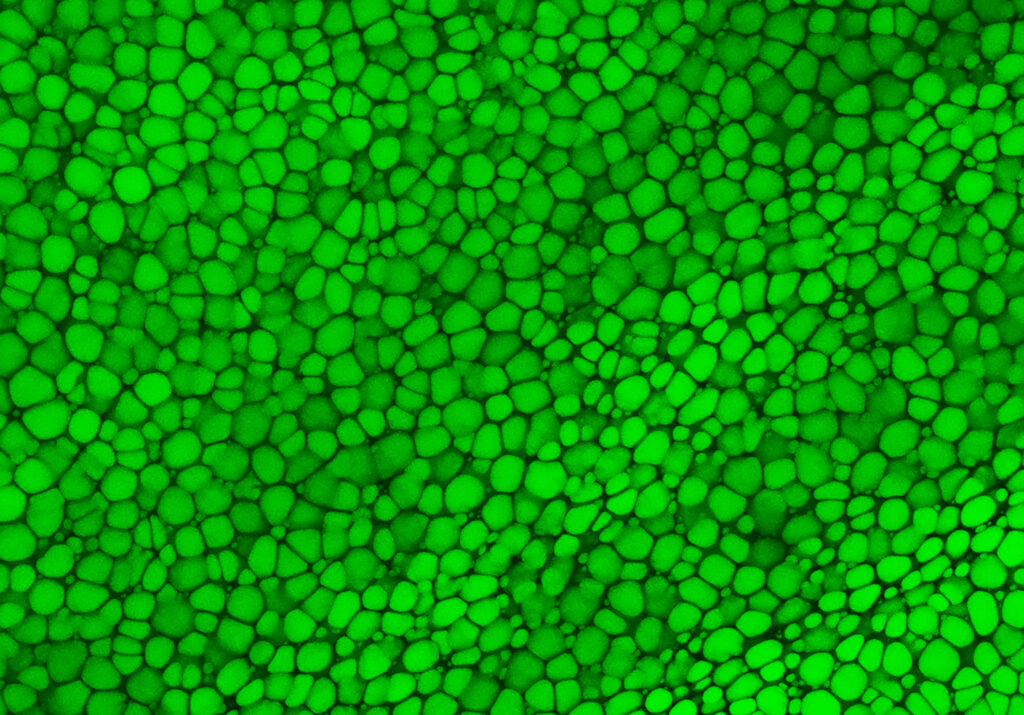About
News
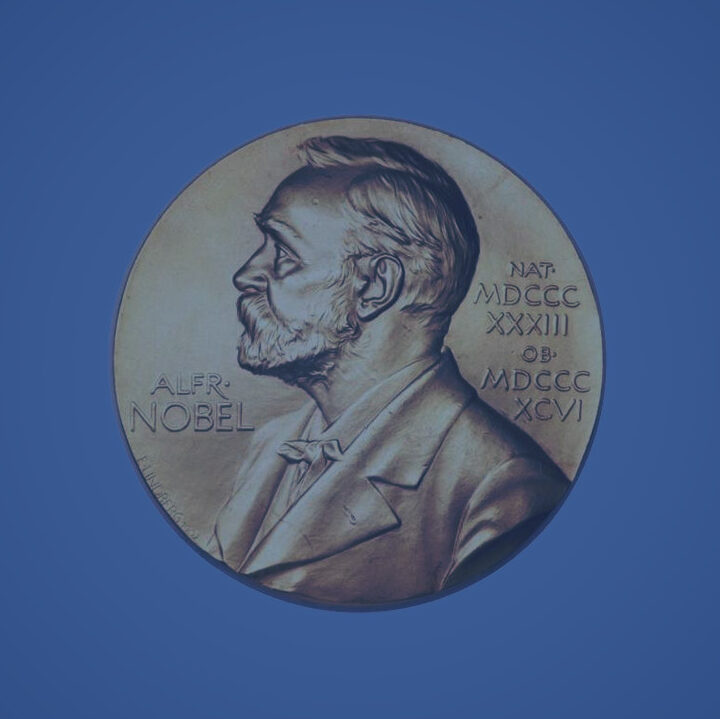
Congratulations to Michel Devoret, recipient of the 2025 Nobel Prize in Physics! Devoret won the prize for the discovery of macroscopic quantum mechanical tunnelling and energy quantisation in an electric circuit. The prize rewards the discovery and demonstration that quantum mechanical properties can be realized on a macroscopic scale with behaviors predicted by quantum mechanics. Devoret shares this year’s prize with John Clarke of UC Berkeley and John Martinis of Silicon Quantum Computing. The team’s work has provided a profound positive impact on the development of next-generation quantum technology.
In 2002, the W. M. Keck Foundation awarded a $1.2 million grant to Yale University to support an interdisciplinary project in coherence, control and noise in quantum information systems. Michel Devoret was one of six principal investigators supported by this initiative. The W. M. Keck Foundation is proud to have provided early funding to awardees of 11 Nobel prizes.
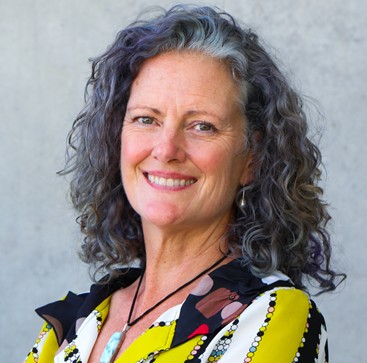
We are delighted to announce the appointment of Dr. Beth Pruitt as the Foundation’s inaugural Chief Scientific Officer. She joins us with an extraordinary record of scientific achievement, leadership, and strategic vision.
Dr. Pruitt holds a B.S. in Mechanical Engineering from MIT and both an M.S. in Manufacturing Systems Engineering and a Ph.D. in Mechanical Engineering from Stanford University. She also completed postdoctoral training in microtechnology at the Swiss Federal Institute of Technology Lausanne. Her academic career began at Stanford as a professor in Mechanical Engineering and Bioengineering. In 2018, she joined the University of California, Santa Barbara, where she played a pivotal role in establishing the Department of Bioengineering and served as its Founding Chair.
Dr. Pruitt’s career is also distinguished by her service. A Navy R.O.T.C. scholar at MIT, she served as a U.S. Navy officer between her graduate degrees, with tours at the Navy’s nuclear engineering headquarters and teaching Systems Engineering and offshore sailing at the U.S. Naval Academy.
Her international experience includes a visiting professorship at ETH Zurich’s Lab for Applied Mechanobiology. Dr. Pruitt is the recipient of numerous honors, including the NSF CAREER Award, DARPA Young Faculty Award, Denice Denton Leadership Award, NSF BRITE Fellow Award, and the Emerald Foundation Distinguished Investigator Award. She is an elected Fellow of the AAAS, ASME, AIMBE, and BMES.
As Chief Scientific Officer, Dr. Pruitt will lead the Foundation’s research strategy, foster scientific collaborations, and serve as a key ambassador for our mission. Her vision and expertise will be instrumental in shaping the future of our programs and expanding our impact across the scientific community.
Please join us in welcoming Dr. Beth Pruitt to the Foundation.
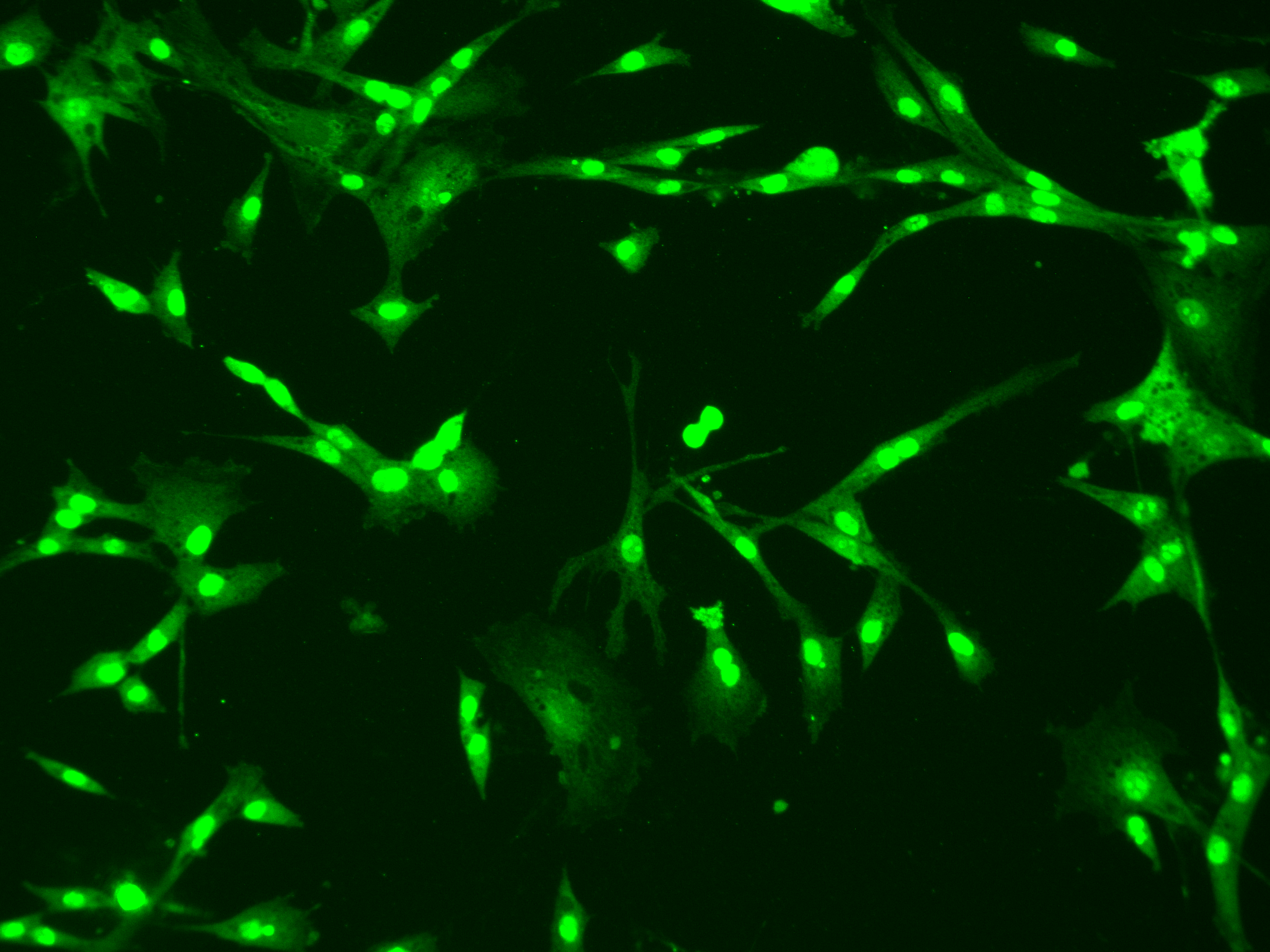
In June 2025, the Foundation’s Board of Directors awarded grants to 17 organizations, totaling $19.6 million. Abstracts for these grants have been released. Congratulations to all our grantees this cycle!
11 grants were awarded in the Research Program, totaling $12.8 million. Abstracts for this cycle’s Research grants are available here.
6 grants were awarded in the Southern California Program, totaling $2 million. Abstracts for this cycle’s SoCal grants are available here. The Foundation granted an additional $4.8 million across 38 organizations to support wildfire recovery efforts in Los Angeles.
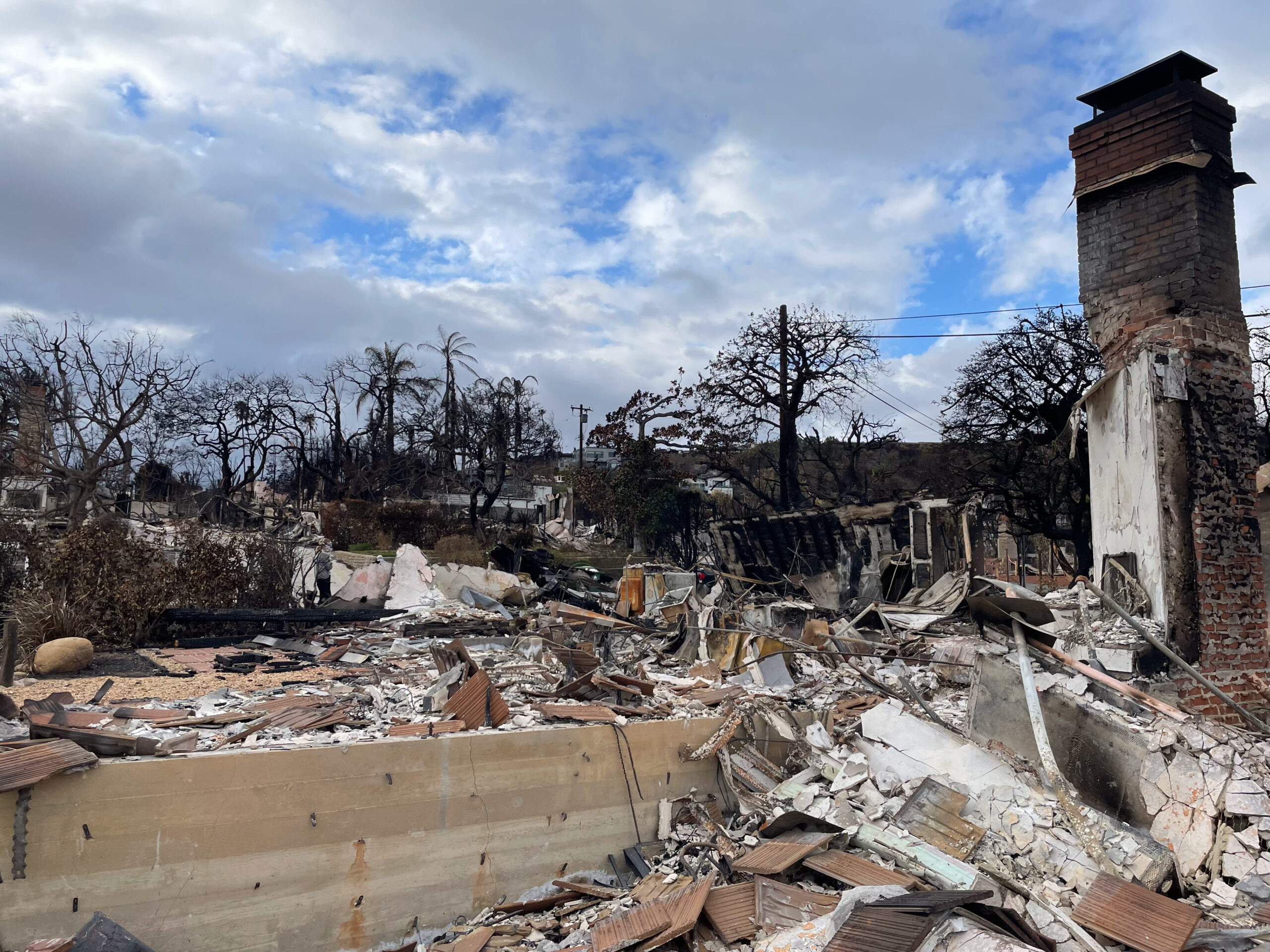
The W. M. Keck Foundation remains committed to supporting the continuing recovery and rebuilding efforts following this January’s devastating wildfires in Los Angeles. So far, we have made grants totaling over $4.5 million towards disaster relief efforts. Our most recent round of grants, totaling over $2.5 million, supports schools; displaced workers and foster families; families’ basic needs; childcare and emotional recovery; and legal help to small businesses and tenants. Recent grantees include:
- Alliance for a Better Community
- Bet Tzedek
- Boys & Girls Club of Pasadena
- Boys & Girls Club of Santa Monica
- Change Reactions
- Child Care Alliance of Los Angeles
- Educators for Excellence
- El Nido Family Centers
- Families Forward Learning Center
- Five Acres
- Foothill Family Service
- Inclusive Action for the City
- Mar Vista Family Center
- Public Counsel
- St. Joseph Center
- Sycamores
- Union Station Homeless Services
- Westside Food Bank
- YMCA of Metropolitan Los Angeles
- Numerous schools in fire-affected areas
This is in addition to the six organizations that received grants to support immediate relief in January:
- American Red Cross
- Direct Relief
- Los Angeles Fire Department Foundation
- Pasadena Community Foundation
- World Central Kitchen
- Shelter Partnership
We are proud to support Los Angeles’ recovery and continue to analyze the most effective ways to contribute toward longer-term rebuilding efforts.
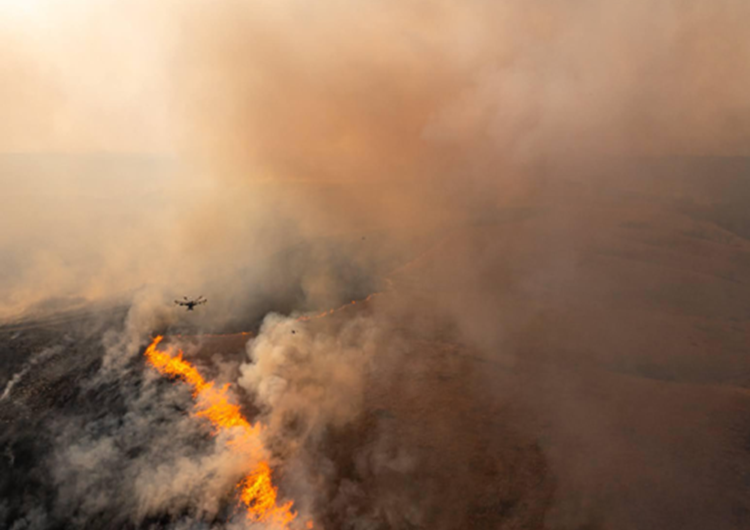
Wildfires are a fact of life in many parts of the world, including Southern California, the home of the W. M. Keck Foundation. The recent Palisades and Eaton fires were devastating to both life and property, and their effects will be felt for many years to come. Even after they are extinguished, the secondary consequences of wildfires linger. In addition to providing direct relief to the victims of the fires, the Keck Foundation has actively invested in understanding some of the downstream effects of wildfires.
In 2021, the Foundation made a $1.2 million Medical Research award to support a collaborative effort among the University of Florida, the University of Idaho, and Kaiser Permanente of Northern California to investigate how wildfires might disperse microbes that cause fungal infections. The team is using unmanned aircraft to capture smoke particles from wildfires to identify the fungi they harbor. They are also analyzing medical records to study the effects of wildfire smoke on the incidence of fungal infections.
A group of investigators at Stanford University received a $1.6 million award in 2022 to improve our ability to accurately quantify the benefits and costs of interventions to reduce the harms from wildfire smoke. This work studies both wildfire smoke, including characterizing its pollutants (e.g., lead, arsenic, and other heavy metals), as well as its effects on humans by measuring toxins found in the blood of firefighters and monitoring hospital visits from the general population.
Most recently, in 2023, the Foundation awarded a team at Colorado State University a $1.2 million Science and Engineering grant to study indoor air pollution. The group is investigating not only how chemicals disperse through a building’s environmental control (HVAC) system, but also how these molecules react with other pollutants such as ozone. This work builds on previous efforts by Principal Investigator Professor Delphine Farmer that showed how wildfire smoke leaves harmful materials on floors and walls.
The W. M. Keck Foundation is proud to support this research into the long-term downstream effects of the wildfires that affect our communities today.
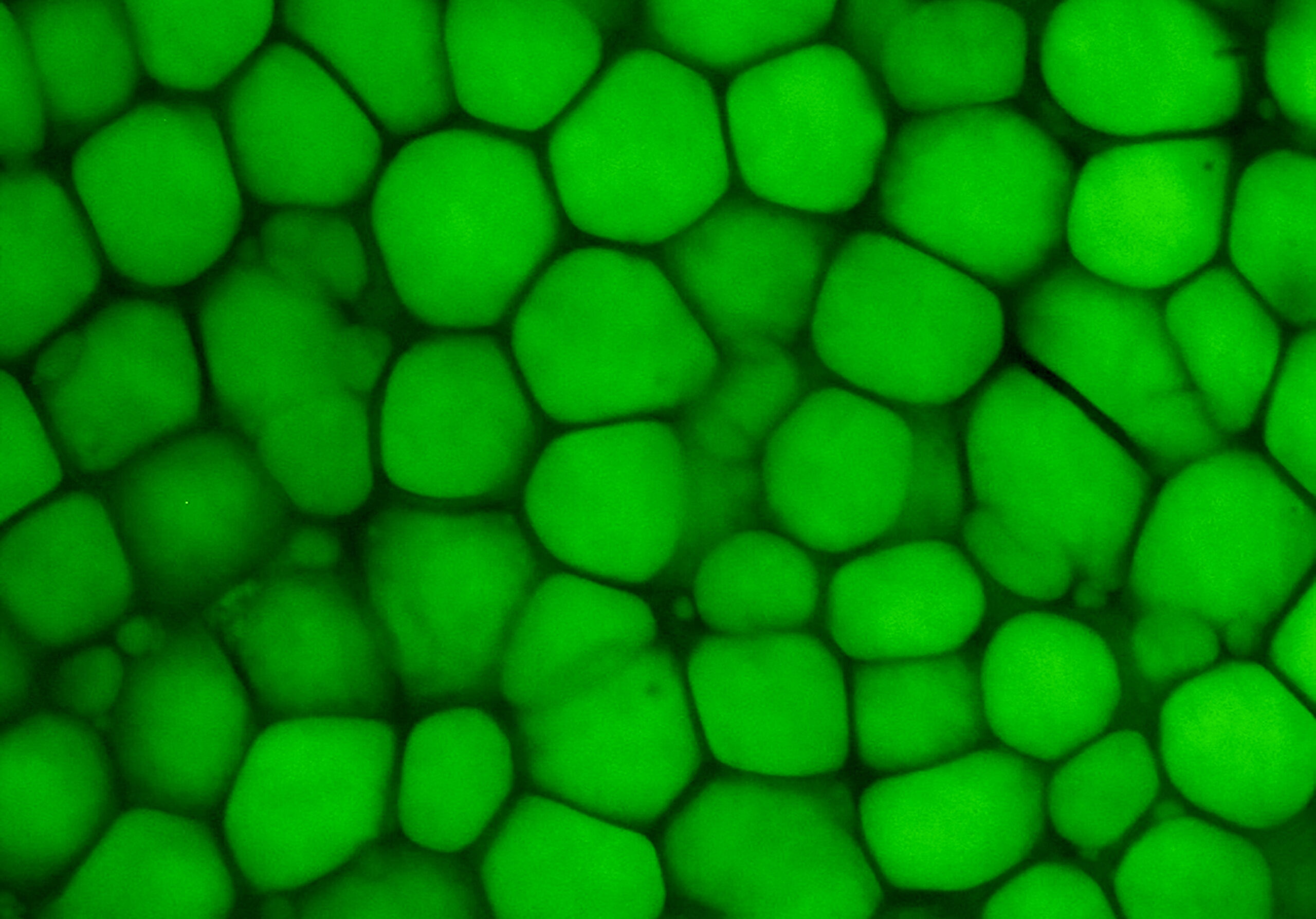
In December of 2021, the Foundation made a $1 million award to Drs. Maksim Plikus and Kyriacos Athanasiou at the University of California, Irvine to characterize an understudied cell type called the lipochondrocyte (LC), which secretes a small amount of extracellular matrix but contains a prominent intracellular lipid-filled vacuole, much like a fat cell. The investigators hypothesized that lipogenesis is critical for the structure-function relationship of LCs and that, analogous to “bubble wrap,” a tissue can acquire cartilage-like biomechanics via tightly packed, lipid-filled cells instead of voluminous, “packing foam”-like extracellular matrix.
In a study recently published in Science, the team found that LC precursor cells in the ear cartilage of mice start out as being similar to the progenitors of ‘conventional’ cartilage, but then as they undergo terminal differentiation, LC precursors activate lipid metabolism genes, including de novo lipogenesis enzymes that convert glucose to fatty acids. However, unlike fat cells, LCs could not take up additional fatty acids from the circulation, nor break down the stored lipids, resulting in very stable fat-filled bubbles.
Through a large network of collaborators, the investigators identified LCs in the tissues of many phylogenetically diverse mammals, including the intricately shaped ears of the bat, but curiously not in those of non-mammalian species that lack external ears such as amphibians, reptiles, and birds. The team also successfully differentiated human embryonic stem cells into organoids with structures that resembled developing “lipocartilage” found in the face and neck. These findings uncovered a hitherto uncharacterized role of LCs in the development and biomechanics of flexible cartilage, inspiring novel approaches to regenerate cartilage.
